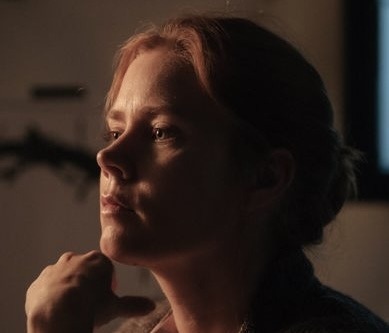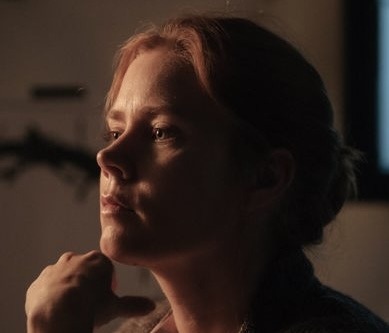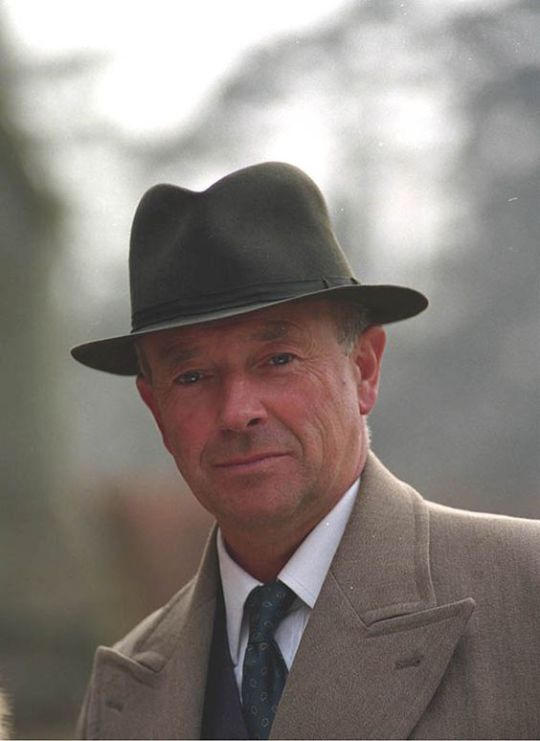#christopher foyle/diana blythe
Note
Fic title
By Yonder Shining Star
By Yonder Shining Star
Foyle’s War casefic where Christopher Foyle has to confront his own experiences in the trenches as somehow, the famous war-poem written by Private Walter Blythe, “The Piper,” whom Foyle met shortly before Courcelette, is the key to finding the murderer. Help comes in the unexpected form of Blythe’s sister Diana, now a middle-aged surgeon preparing to go to France within a fortnight. She was nothing at all like Rosalind, barely reminded him of Blythe, and yet there was something about her he could not resist.
#foyle's war x anne of green gables crossover au#christopher foyle/diana blythe#I would probably dance around the case like you wouldn't believe#foyle canonically served in wwi
13 notes
·
View notes
Text
A letter always seemed to me like immortality

Everyone Diana wanted to write to was dead.
Walter, what seemed like a dozen lifetimes ago, at Courcelette if his last letter to Rilla was to be believed; Diana had often wondered whether he had already considered himself a dead man walking before the day of the last battle, the boy he’d been destroyed beyond repair or rebirth.
Aunt Leslie, whom she’d found it easier to talk to than her own mother, perhaps because she’d also had a brother she adored. Perhaps because she’d left Glen St. Mary and never missed it.
Perhaps because Leslie liked whiskey better than tea, newspapers better than poetry.
Una, who’d been too pale since she barely survived nursing her father and stepmother through the Spanish flu, who’d been someone everyone underestimated or decided to treat as a martyr, who would not have judged Di the way her own sisters would.
Rosalind Foyle, whom she’d had to ask about as discreetly as she could, counting on her general reception as a cheerful and polite Canadian, not much like a bossy Yank, to yield her the few details she’d squirreled away. An artist, a mother. A beauty. Better-bred than her husband, well-liked, she’d had elegant hands and never forgot to wear gloves.
Diana only wore gloves to operate and if an actual gale was blowing in a blizzard.
Who had thought all she wanted was to go to France, to make something of her life that would last her the rest of it. That might make the rest of it of a duration she could bear, an end her family could cope with or justify why she’d never return to PEI.
Dear Una,
You’re the best one to write to, I think. The one who’d mind the least, like it the most. The least awkward for me to imagine reading this, the least likely to tell me something I don’t want to know. I leave for France in a few weeks and now I don’t want to go. Or rather, I do and then I don’t. There’s something holding me in England now, something to do with Walter, a mystery. Men, who’ve died. A man who’s alive, very much so.
A man I want to know. His name is Foyle. Christopher. He knew Walter, said Walter knew him as Kit. Everyone calls him Foyle or sir or Superintendent.
Christopher.
Oh Una, I thought this was behind me. That it was something I’d never have to deal with, some sort of consolation of being a woman in a world missing a generation of men. I thought I wouldn’t know this and that was a relief, watching you and Rilla and Nan. Faith. Mary. I thought it was fair, that I’d never know heartbreak like this.
And now there’s Christopher. A half-dozen dead men. Walter’s poem. And France, waiting for me. I have to go, I know that, but how do I go wanting to stay here, a place I can’t call home. Wanting to come back.
Christopher. I like writing his name because I oughtn’t say it often. That’s what a young girl does, lovesick, dull, embarrassing herself, making everyone around her smile behind their hands unless it’s Miss Cornelia, scolding you for making a fool of yourself and for what, a man? What’s a man worth, I ask you—can’t you hear her say it, tart, ready to wash her hands of us—
I don’t care what a man’s worth, Una.
Just Christopher.
And I can’t answer the question, not to satisfy Miss Cornelia or you or myself.
You’d write me back something comforting, if you could. If you hadn’t died before your time, twice over, after the telegram, after the epidemic. I should have insisted you leave before me or with me. I should have told your father you were worth more than all the rest of them put together or made Dad send you away to convalesce, somewhere warm, where you might have lolled about, turning brown in the sun.
I’ve said I’ll go to France and sew up the men who need sewing up. Cut off the parts that need cutting off. I’ve said that’s my life, my vocation, as important as Mother’s poetry, as Walter’s, as the babies Jem delivers and the columns Ken Ford writes, and it must be but now there’s murder and Christopher to contend with, a dozen mysteries at the heart of me.
For it seems I’ve a heart after all, Una. It beats and beats and leaps when it oughtn’t. It will break, I know it shall.
Christopher.
I’ll take a dream in lieu of a letter. A flower, out of place, in lieu of a word.
Answer me if you can, Una. You can’t and I know that, but I’ll still hope, silly Di Blythe.
She put the letter in an envelope but left it unsealed and unaddressed.
Left the envelope in an otherwise empty drawer of the desk in her flat. If she didn’t return from France, well, that didn’t bear thinking about too closely. If her papers were sent back to Canada, her father would likely burn the letter rather than let her mother see it unless if gave it to Nan, thinking her twin would derive some comfort and, happily married to Jerry, the bonny wife and mother Di had not made of herself, could weather any pang it gave her.
If somehow it ended up with Christopher, he’d know how she’d once felt.
She could make that happen, writing his name across the white field of the envelope, but that was too much like a dare, and for all she was her father’s daughter, she still had her mother’s wise fear of the fey.
She’d written his name enough. She’d hope she’d come back to say it.
#aogg fic#aogg#diana blythe#foyle's war#aogg x foyle's war crossover#WWII AU#christopher foyle#diana blythe x christopher foyle#dr. diana blythe#angst#romance#letters#una meredith#walter blythe#leslie ford#rosalind foyle#inspired by my own fic#if I write a third installment#it's a series#anne of green gables#book-verse
15 notes
·
View notes
Text
By Yonder Shining Star


He had not expected to begin with a reprimand.
“I don’t bite, you can stop lurking in the doorway,” Dr. Blythe said, not glancing up from the chart she was writing in. Foyle suspected she would have sounded much the same if he’d come upon her while she finished closing an incision after a long surgery, the same wry tone that had a hint of impatience in it. There were few enough female surgeons in England, even fewer egalitarian ex-pat Canadians, so it didn’t take much to infer she must be brilliant and driven, used to those around her finding her an anomaly. An Original, they would have said once in London society and been more accurate perhaps, but not a remark he’d offer if he wanted to get anything helpful from her. That’s why he was here, he reminded himself. It had been a long while since he’d needed reminding about his work.
“I didn’t mean to interrupt,” he said. “I’m—”
“You did mean to interrupt and you’re Detective Superintendent Christopher Foyle of Hastings,” she said as she laid the pen down. He’d heard her described as “attractive enough” and had wondered enough for whom before he met her. Now, he found himself pinned by her grass green eyes, startled into silence like a green lad, feeling a fool as he hadn’t for years.
Decades really. Sam would burble in wonder to see him struck dumb while Milner would only give a brief and comradely nod of recognition.
“You’re well-informed, Dr. Blythe,” he said.
“You expected that,” she said. “That’s why you’ve come, to pick my brain, to winkle out some piece of information, some cipher that will break the code you can’t. To solve your case. It is a Godawful mess, I’ll give you that. The pathologist’s report was quite detailed. Almost literary.”
“I’ve come to ask for your help,” he said simply. Because he thought she’d prefer it and because it couldn’t think of what else he might have said.
“You might as well sit down. You’ll have to forgive me—I can’t offer you a cup of tea or even a biscuit,” she said. “I haven’t an assistant who sees me fed and watered.”
Something about the way she’d said it was an alert.
“The other surgeons do. Any of the nurses are glad to fix them a cuppa,” Foyle offered.
“I don’t know about glad, exactly, but it’s in that general way. I’m meant to fend for myself. It’s my own fault I’m not much good at fending. I was spoiled, growing up, with our housekeeper Susan. There was never an evening without a little snack prepared and her solution to any problem was the teakettle on the stove and a slice of fresh pie,” she said. She had a square jaw and her auburn hair was sprinkled with grey and tucked back in a practical snood, but there was a certain whimsical nostalgia in her expression. “She was a splendid bustler, our Susan, and that you may tie to, Mr. Foyle. And now I’ve run on and run and you want my help or whatever help you think I can give you, so you may as well begin winkling.”
“You have a way with words,” he said.
“Flattery will get you nowhere with me. I’m by far the least eloquent person in my family. It’s no accident I’m a trauma surgeon,” she said.
“It was an observation,” he replied. “And it’s because of your family I’ve come to speak with you.”
“It’s Walter,” she said, any dry humor entirely gone from her voice, from those arresting green eyes. Saying the name of her brother dead these twenty odd years aged her; Foyle saw the lines her face fell into when she despaired, the nights of grief that never entirely abated.
“Yes. Because of what he wrote, Dr. Blythe,” he said, wondering if the clarification would bring her any relief. Wondering at himself for thinking of that first. Rosalind, who’d ever been generous, would not begrudge him an interest, a possibility, but he worried what it meant for his duty to the dead men, whose murders he was charged to solve, no matter that other men were dying across the Channel, that he risked making Diana Blythe’s hand unsteady when she held a scalpel or a needle trailing suture.
“A poem,” she guessed. Hoped? The alternative was most likely one of his letters, perhaps one he’d written to her, one she wouldn’t want to surrender or corrupt by handing it over to be part of a criminal investigation.
“Yes. The poem, the famous one,” Foyle said.
“The Piper,” she said, her color back. “He’d have hated it, positively loathed what happened with that. All the breathless sentiment, the rallying and the women who memorized it, that sickly sweet melody Tremaine wrote for it—I swear it would be tattooed over half of Canada and all of PEI if people thought it was within the bounds of polite society. It’s not even close to his best work, I want you to know—”
“I know. I met him. In the trenches,” Foyle said.
“Fuck,” she said softly. And then, “I beg your pardon, I shouldn’t speak so—”
“Plainly? You can’t imagine I’d take any offense,” Foyle said. “I met your brother only a few days before he died.”
“Before Courcelette.”
“Yes. I was very young and he wasn’t much older, but he’d been fighting for several months longer than I had, maybe a year. I didn’t think anyone could live that long in that hell and still find something worth living for. Could still remember anything beautiful,” Foyle said.
“It was that bad?”
“It was worse,” Foyle said. Something in her face told him she would not challenge this, nor would she make him explain. Rosalind hadn’t done either, which was why he hadn’t cracked up entirely before Andrew was born. “Whatever he wrote to you, it was worse.”
“He didn’t tell us anything. Not even me,” she said.
“You were close,” he said.
“I thought so. The night before he died, he wrote a letter. To our younger sister Rilla and a friend, Una. She was in love with him, Una, we all knew that, but he didn’t love her that way. I thought we were close, closest to each other over everyone, but he didn’t write to me,” Diana said.
“Perhaps he couldn’t. Perhaps he knew you would be able to tell if he held something back. If he lied to try and protect you,” he said.
“Perhaps. Is that what you did, Detective Superintendent Foyle? Did you lie and keep secrets?” she asked. No one had ever dared before, not Rosalind, who’d admitted once she did not want to know everything about him.
“Christopher. My name is Christopher,” he said. “A long time ago, I was Kit. That was when I knew your brother.”
“I’m Diana. How does Walter’s poem have something to do with a triple murder?”
“There have been five murders thus far,” Foyle said. “It’s complicated, will take some time to explain. There’s a Lyons round the corner, quiet enough this time of night. We might have that cuppa—”
“If there have been five murders and somehow my brother’s poem is crucial to finding the killer, I’ll need something stronger. Bitter will do. I’d offer to stand you a pint, but I imagine that’s not considered ethical,” she said.
“No, nor gentlemanly,” he said, surprising himself.
“We’ll go Dutch,” she said, getting up from her desk and walking around to take down her coat and cram her barely fashionable hat upon her head. The coat flapped around her legs, obscured in a pair of drab tweed trousers, an unremarkable pair of brogues on her feet. She was beautiful.
“We haven’t much time,” she said, passing him at the door.
“I know it’s late. You must have an early surgery tomorrow,” he said.
“Yes, but that’s not what I meant. I ship out in a few weeks,” she said.
“France?”
“France,” she said. “I never wanted to go before. And now I can hardly wait.”
“I won’t waste your time,” he said.
“No, I don’t think you will,” she replied.
#foyle's war au#aogg#christopher foyle#diana blythe#christopher foyle x diana blythe#crossover au#dr diana blythe#walter blythe#the piper#both walter and foyle served in wwi#excerpt from a slow burn I probably won't write more of#for clarity this is all there is#I just imagine it as part of something larger#rosalind foyle#foyle's war
18 notes
·
View notes